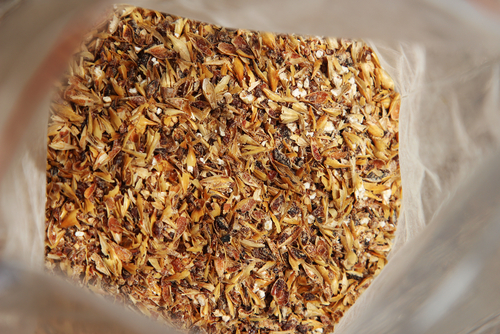Scrutinising the future of UK milling and malting
- Like
- Digg
- Del
- Tumblr
- VKontakte
- Buffer
- Love This
- Odnoklassniki
- Meneame
- Blogger
- Amazon
- Yahoo Mail
- Gmail
- AOL
- Newsvine
- HackerNews
- Evernote
- MySpace
- Mail.ru
- Viadeo
- Line
- Comments
- Yummly
- SMS
- Viber
- Telegram
- Subscribe
- Skype
- Facebook Messenger
- Kakao
- LiveJournal
- Yammer
- Edgar
- Fintel
- Mix
- Instapaper
- Copy Link
Posted: 10 September 2018 | New Food | No comments yet
A new report published by AHDB suggests Brexit will have a considerable impact on the UK’s milling industry under a range of trade scenarios but the malting sector is in a far better position to weather the storm.


A new report published by AHDB suggests Brexit will have a considerable impact on the UK’s milling industry under a range of trade scenarios but the malting sector is in a far better position to weather the storm.
The ‘what if’ analysis was commissioned by AHDB to help millers and maltsters with their business strategies ahead of Brexit.
It also aims to help give insight into long term implications on planting and highlight potential impacts on grain prices.
The report – Brexit scenarios: Impacts on the UK’s milling and malting sectors – assesses the impact of three post-Brexit trade scenarios on supply and demand for milling wheat, malting barley, flour and malt.
Firstly, a Free Trade Agreement (FTA) with the EU agreeing zero tariffs, secondly a unilateral approach where imports are tariff free but exports are subject to tariffs and thirdly mutual application of World Trade Organisation (WTO) tariffs in the case of a so called ‘hard Brexit’.
UK flour trade is likely to experience significant disruption post-Brexit, even if a FTA is negotiated, says AHDB. This is partly due to UK mills’ reliance on global imports of high-quality milling wheat, which may which may disqualify UK flour from preferential access to EU market.
This will impact mills on the British mainland if they lose free access to this market via the cross-border trade. By far the biggest impact could be the loss of trade with the Republic of Ireland, which currently receives two thirds of its flour from mainland British mills.
The outlook is more positive for the malting sector, says AHDB: “With almost all UK malt currently exported to non-EU countries, trading arrangements with the EU would have little impact. Brexit may also provide an opportunity for UK growers to displace malting barley imports by growing six-row malting varieties.”
Dr Martin Grantley-Smith, Strategy Director for Cereals & Oilseeds, said: “There could be some tough decisions to be made by UK millers and maltsters in the near future depending on how Brexit pans out.
“This is a timely report providing some early warning of how the challenges may play out, so that businesses can revisit some of their options for post-March 2019.
“Up to now our trading arrangements with the EU have been of critical importance and this report clearly shows, whatever the outcome of Brexit, business-as-usual is not going to be an option.”
To download the report, visit www.ahdb.org.uk/brexit




